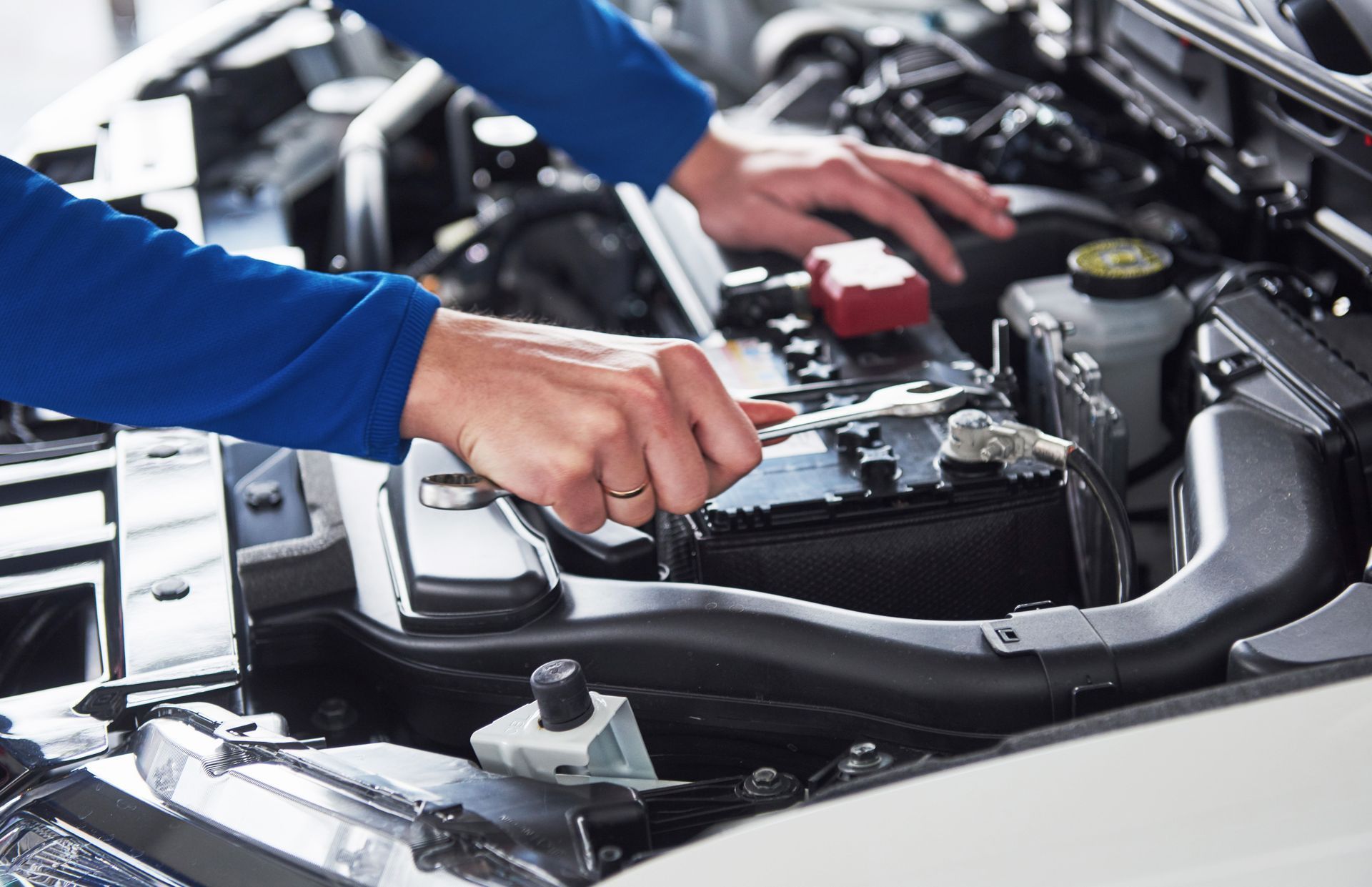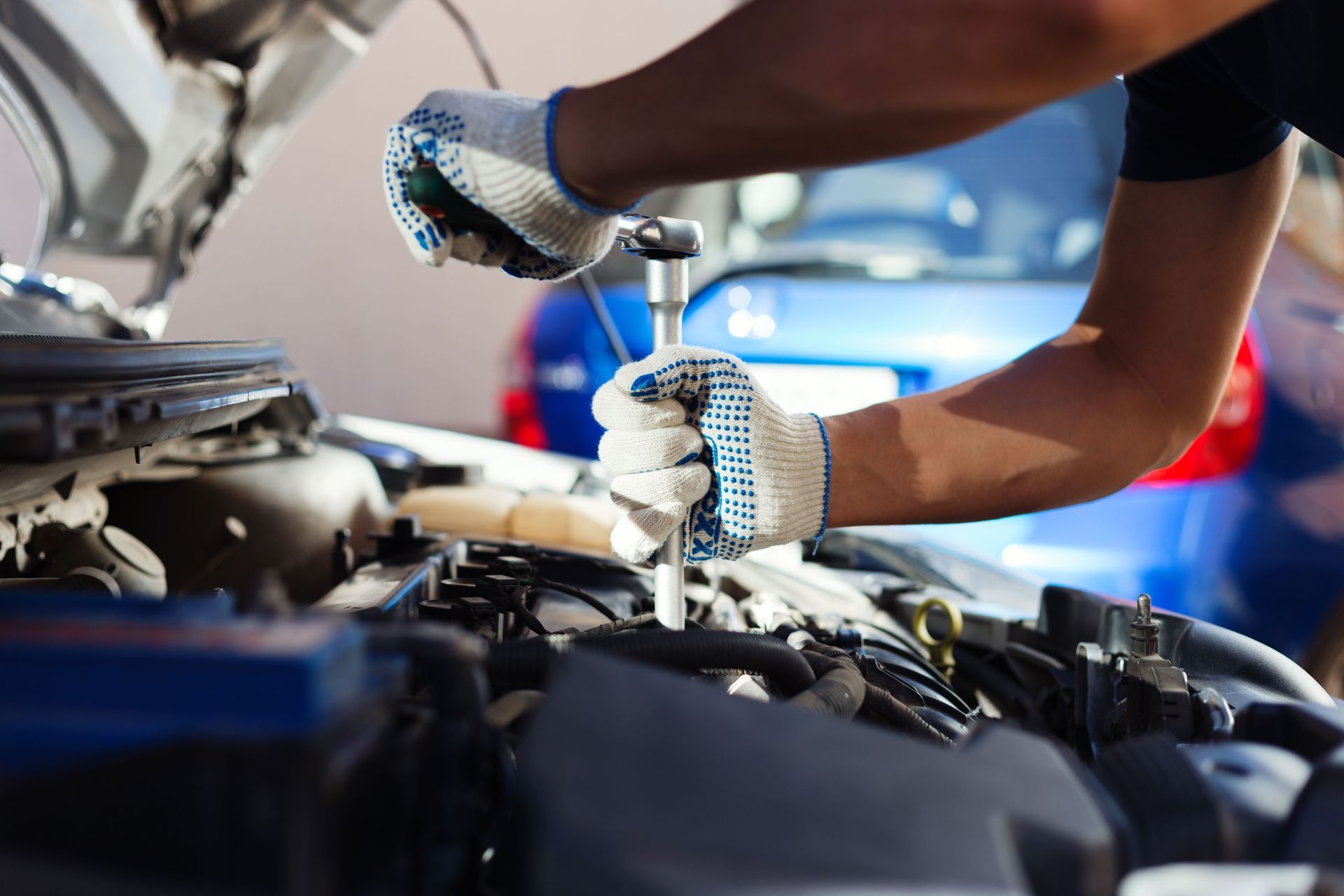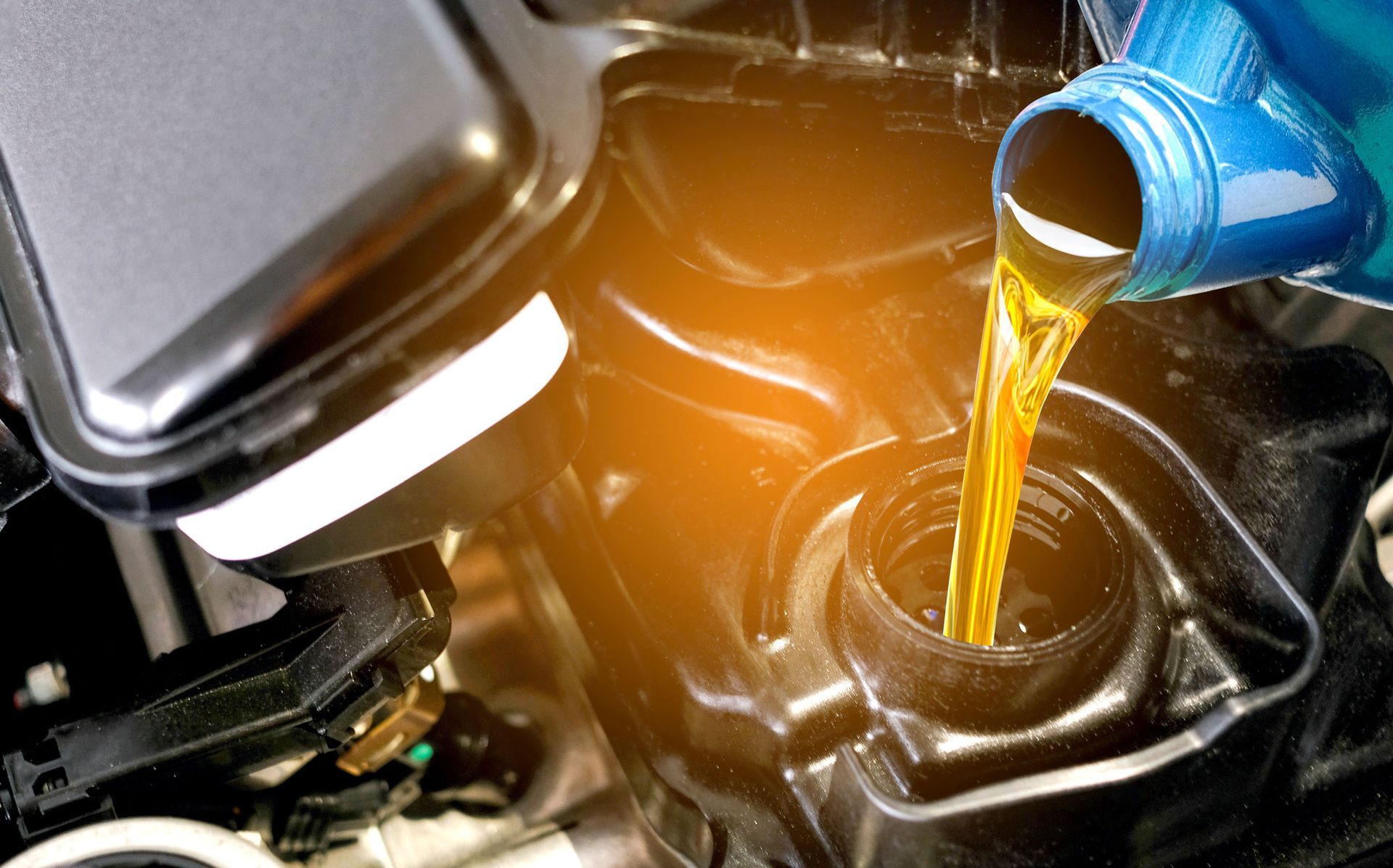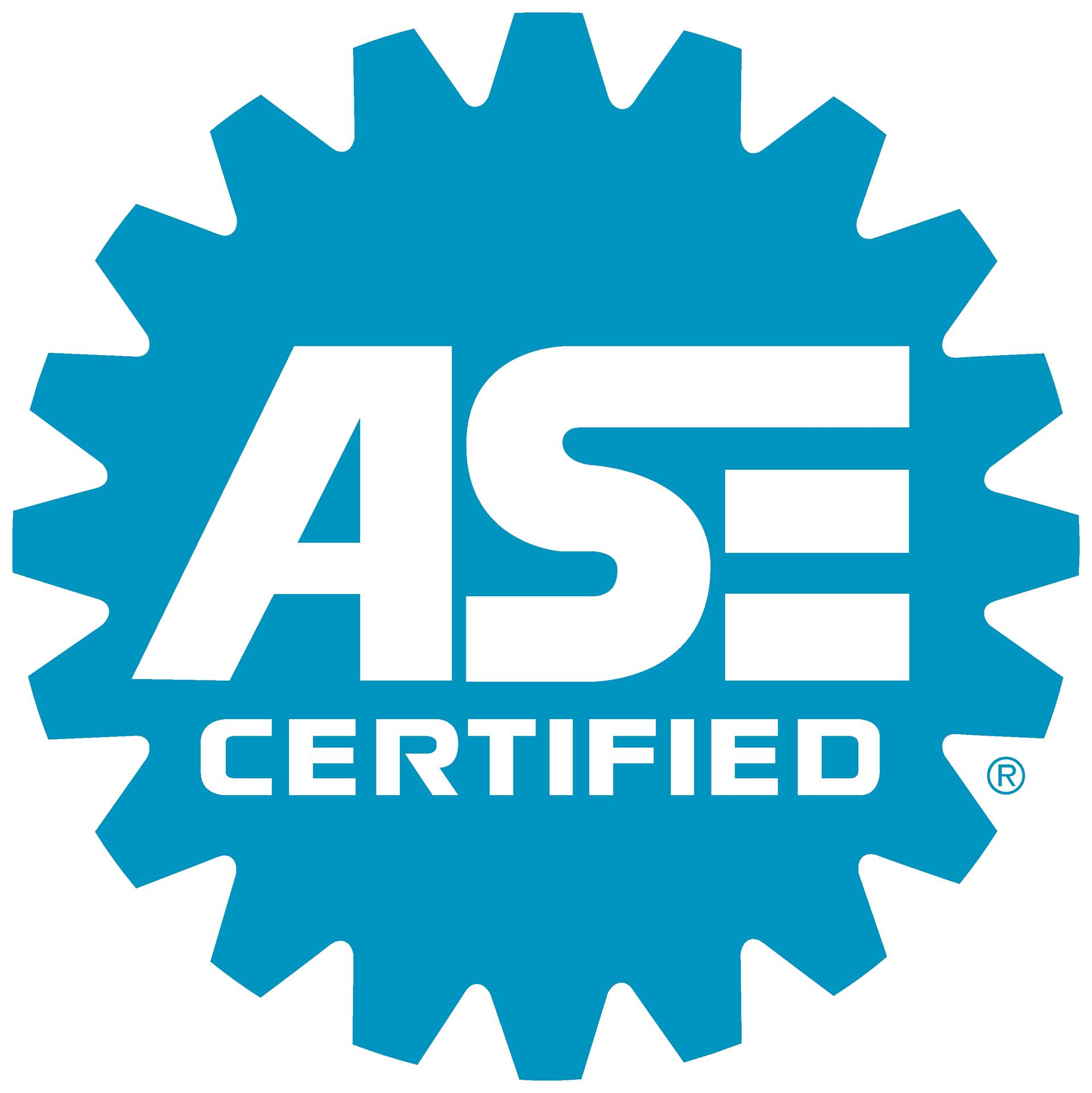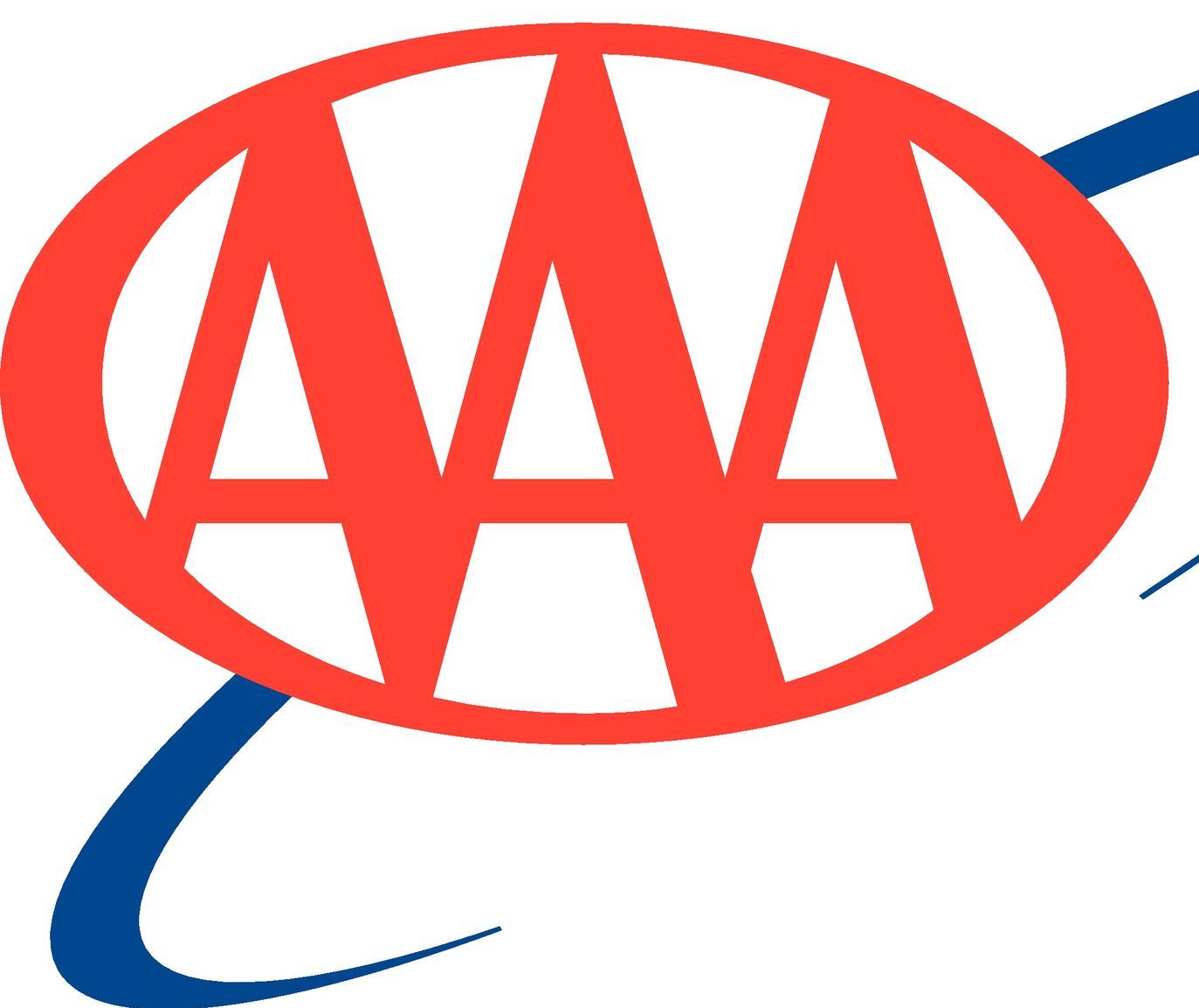November 14, 2025
Every vehicle owner understands the importance of regular maintenance, but sometimes it's easy to overlook small warning signs that point to larger mechanical problems. Whether you drive daily or just on weekends, paying attention to your car's behavior can save you from costly breakdowns. According to ConsumerAffairs, the average age of passenger vehicles and light trucks in the United States was 12.5 years in 2023, which means many drivers are keeping their cars longer than ever. That makes recognizing repair needs even more crucial for safety and longevity. In this article, we'll explore key signs your vehicle might need professional attention.
1. Strange Noises Coming From Your Vehicle
If your car begins making unfamiliar sounds, it's one of the first red flags that something's off. Screeching, grinding, knocking, or squealing could point to anything from worn brake pads to failing bearings or engine issues. A high-pitched squeal during braking often indicates the need for new pads, while a knocking sound under the hood may mean trouble with the engine's internal components.
Ignoring these noises can lead to bigger, more expensive problems. Visiting a trusted local auto repair shop early can prevent damage from worsening. Mechanics have the tools and expertise to pinpoint the noise source and perform timely repairs, protecting your vehicle's lifespan.
2. Unusual Vibrations or Shaking
If your steering wheel, seat, or pedals vibrate while driving, your car might have a problem with its tires, suspension, or alignment. Sometimes, these vibrations can stem from unbalanced tires or warped rotors, which can compromise your control over the vehicle.
When you notice your car shaking—especially at higher speeds—it's wise to bring it in for a local auto repair inspection. Professionals can rebalance your tires, replace worn components, and ensure your car rides smoothly and safely again.
3. Warning Lights on the Dashboard
Modern vehicles are equipped with advanced sensors that alert you when something is wrong. Whether it's the “check engine” light, oil pressure warning, or ABS indicator, these lights are your car's way of signaling that something needs attention.
A steady check engine light could mean a minor issue, such as a loose gas cap, while a flashing one might point to a misfiring engine or more severe mechanical problems. If you're unsure what a light means, don't guess—take your car to a local auto repair professional who can run diagnostic tests to identify the problem.
4. Poor Fuel Efficiency
If you find yourself visiting the gas station more often than usual, it's a sign your vehicle might not be running efficiently. Common causes include dirty air filters, worn spark plugs, or failing oxygen sensors. These issues can all affect your car's combustion process, reducing fuel efficiency and increasing emissions.
Scheduling maintenance at a local auto repair shop can restore your vehicle's performance. Mechanics can clean or replace essential parts, ensuring that your engine burns fuel efficiently and keeps your costs under control.
5. Fluid Leaks Under the Vehicle
Spotting a puddle under your parked car is never a good sign. While condensation from your air conditioner is harmless, other leaks—like oil, transmission fluid, or coolant—signal potential problems. Each fluid serves a crucial role, from lubricating the engine to preventing overheating, so losing them can lead to serious mechanical failure.
If you notice any fluid stains or dripping under your vehicle, contact a local auto repair professional immediately. They can identify the source, fix the leak, and refill fluids before your car sustains damage.
6. Reduced Braking Performance
Brakes are among the most vital safety components in your car. If your vehicle takes longer to stop, the pedal feels soft, or you hear squealing noises when braking, it's time for an inspection. Worn pads, low brake fluid, or warped rotors could be to blame.
Braking issues can escalate quickly, making your vehicle unsafe to drive. Visiting a local auto repair facility ensures the braking system is properly examined, repaired, and tested to meet safety standards.
7. Trouble Starting the Engine
When your car struggles to start or requires multiple attempts before the engine turns over, there could be several causes—ranging from a weak battery and faulty starter to a malfunctioning ignition system. In some cases, extreme weather can also affect performance, but persistent starting issues usually mean something mechanical is wrong.
A qualified local auto repair shop can test your battery, alternator, and ignition components to find the problem. Replacing small parts early can prevent you from being stranded later.
8. Excessive Exhaust Smoke
The color of your vehicle's exhaust smoke can tell you a lot about what's happening under the hood. Blue smoke might indicate oil burning, white smoke could point to coolant entering the combustion chamber, and black smoke suggests excessive fuel consumption. Each of these signals a different kind of engine trouble that shouldn't be ignored.
By taking your vehicle to a local auto repair expert promptly, you can diagnose the underlying issue before it damages the engine or catalytic converter. Regular maintenance, such as oil changes and tune-ups, can also prevent these issues from arising.
9. Unresponsive Steering or Pulling to One Side
If steering your car feels heavier than usual or the wheel pulls to one side, your vehicle could have an issue with its power steering system, alignment, or suspension. You might also feel vibrations through the steering wheel, especially while turning or braking.
A misaligned suspension not only affects steering control but also causes uneven tire wear. Schedule a visit with a local auto repair shop to correct these problems. Mechanics can adjust alignment, inspect the steering fluid, and replace worn components to restore smooth handling.
10. Odd Smells Coming From the Vehicle
Unusual odors are another indicator that something's wrong. A burnt smell could suggest overheating brakes or clutch issues, while a sweet scent might signal a coolant leak. The smell of gasoline could mean a fuel system leak, which poses a serious safety risk.
A quick response is key—mechanics at a local auto repair facility can identify the source and resolve it before it leads to more costly damage or a safety hazard.
11. Transmission Issues
Your vehicle's transmission plays a vital role in shifting gears smoothly. If you notice slipping gears, delayed acceleration, or grinding noises when changing gears, it's a clear sign your transmission needs attention. Ignoring these issues can lead to total transmission failure—a very costly repair.
Having your transmission checked at a local auto repair shop can extend its lifespan. Regular fluid changes and inspections help maintain smooth performance and prevent breakdowns.
12. Visible Wear and Tear on Tires
Tires are your vehicle's only contact with the road, so their condition directly affects safety and performance. Uneven tread wear, bulges, or cracks could indicate poor alignment, suspension problems, or low tire pressure.
Keeping your tires in good shape not only enhances safety but also improves fuel efficiency. A local auto repair technician can rotate and balance your tires, inspect tread depth, and align your wheels to keep your car road-ready.
13. Rough Idling or Stalling
If your car vibrates excessively or feels rough while idling, it might be due to dirty fuel injectors, a clogged air filter, or ignition problems. Stalling can be even more concerning, especially if it happens at intersections or in traffic. These issues often worsen over time if left unchecked.
By visiting a local auto repair specialist, you can restore smooth engine performance. Technicians will inspect your engine components, fuel system, and sensors to get everything running properly again.
If you've noticed any of these symptoms or simply want peace of mind, contact Enjoying Mechanics today. We'll inspect your vehicle thoroughly, identify any concerns, and provide honest recommendations to get you back on the road safely. Let us handle your repair needs with precision, professionalism, and care.
